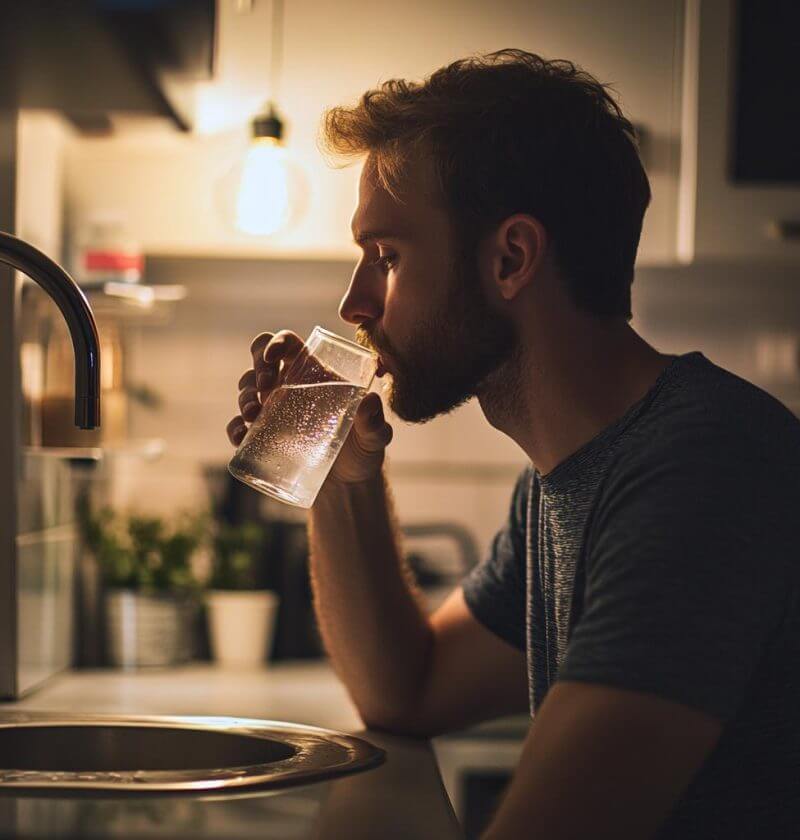Would you like to save this?
The question of whether drinking bathroom tap water is safe often sparks debates, especially when convenience wins over health concerns. If your husband prefers drinking bathroom water at night because he’s too lazy to walk to the kitchen, you’re right to wonder if it’s a good idea. While water from bathroom taps may seem identical to kitchen tap water, there are a few factors that could affect its safety and quality. Understanding these differences can help you make informed decisions about what’s best for your health. Let’s explore the potential risks, the differences between bathroom and kitchen tap water, and a few practical solutions to avoid any issues.
Potential Contaminants
Bathroom plumbing is often used less frequently than kitchen taps, which can lead to water stagnation in the pipes. When water sits in pipes for extended periods, contaminants such as bacteria or metals from the plumbing system can accumulate. In homes with older plumbing, there’s an even greater risk of small amounts of lead or rust leaching into the water.
Difference in Filtration
In some homes, water softeners or filtration systems are connected only to the kitchen taps. This means that the water from the bathroom tap might not receive the same level of filtration or treatment, leaving it more susceptible to impurities. This difference could affect both the taste and the overall quality of the water.
Maintenance Issues
Kitchen faucets tend to receive more attention and regular maintenance compared to bathroom fixtures. This is partly because kitchens are high-traffic areas where water quality is prioritized. Bathroom fixtures may be older or neglected, increasing the chances of leaks, rust, or mineral build-up in the pipes, all of which could affect the quality of the water.
Check Your Plumbing
Have a plumber inspect your bathroom plumbing to ensure everything is in good condition. This inspection can identify potential contaminants, corrosion, or other issues that might affect water safety.
Install Filters
If you or your family frequently drink water from the bathroom tap, consider installing a small, easy-to-use water filter on the bathroom faucet. This will help ensure that the water is filtered similarly to what you get from the kitchen.
Use a Water Test Kit
To monitor water quality, purchase a home water test kit. These kits are easy to use and allow you to test for common contaminants like lead, chlorine, and bacteria. Regular testing can give you peace of mind about the safety of your bathroom tap water.
Opt for Convenience
If the walk to the kitchen feels like too much at night, keep a glass of water or a reusable water bottle on your nightstand. This way, you’ll have clean water within reach without worrying about the quality of bathroom tap water.
While drinking water from the bathroom tap may seem convenient, it’s essential to understand the potential risks involved. Differences in usage, filtration, and maintenance can impact the water quality, making it less reliable than water from the kitchen. By taking a few simple steps—such as testing the water, checking plumbing, or installing filters—you can ensure that the water you consume is safe and clean. In the end, keeping a bottle of water by the bed may be the easiest solution. It guarantees you’ll have access to safe water without any hassle or concerns, ensuring both your health and peace of mind.







